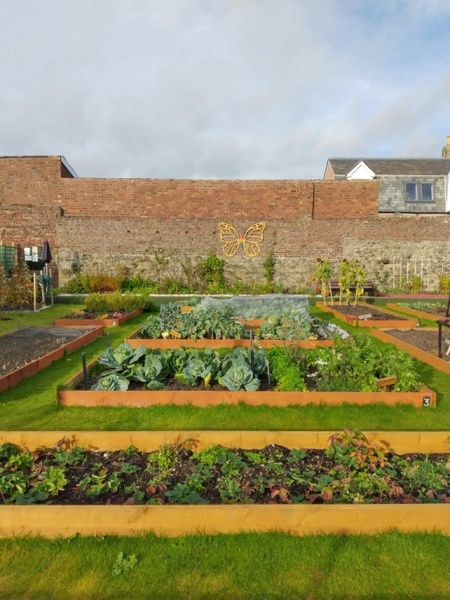What if one of the things known for helping and reducing stress and anxiety, becomes such a commitment, it leads to burn-out?
It is widely believed that getting involved in community gardening projects is beneficial to health and wellbeing; in fact, participation is increasingly prescribed as a non-medical public health intervention. New research, however, suggests that this might not always be the case.
A study led by Professor Donald Gray from the University of Aberdeen and published in Local Environment has highlighted the challenges faced by volunteers, in particular, the wide range of skills that is required to establish and maintain a project ,and suggests that authorities could do more to support them.
Researchers from the School of Education, the School of Biological Sciences and the Rowett Institute came together to explore the positives and negatives of being involved in urban food growing activities in Aberdeen.
Dr Jennifer Wardle from the School of Biological Sciences explained: “We set out to look at the positive and negative impacts of getting involved in urban food growing in general and found that the experience was affected by the COVID lockdown period of 2020/21. An interesting theme which emerged was the challenges to health and wellbeing associated with the volunteer coordinators of local groups in the city.
“In recent years, community gardens and allotments have become popular past times for many people, but there is little awareness of the constraints to their long-term sustainability or the negative impacts on health and wellbeing that may arise from such ventures. The burden of these responsibilities may be a threat to the longevity of community gardens and related organisations.”
The team worked with members of the local food communities including allotment tenants, community garden volunteers, schools with food growing projects and other associated bodies, carrying out interviews to seek a range of views across Aberdeen.
The research found that there are numerous benefits of being involved in community gardens and their associated activities, including social connectivity, improved physical fitness and mental wellbeing and access to fresh food. The advantages extend to the wider society through open days and community involvement in schemes such as It’s Your Neighbourhood, while environmental improvements are facilitated through increased awareness and action relating to urban biodiversity, climate change and food waste. However, funding opportunities tend to have specific themes, meaning some communities in Aberdeen found it difficult to meet their requirements. It was also recognised that various groups were in competition for the same grants, and that relying on grant funding was not sustainable in the long-term.
Professor Donald Gray said: “During the course of our interviews, we asked individuals about their experiences of being involved in a community garden project.
“We found that volunteers were motivated by the desire to introduce others to the benefits of sustainable food growing for themselves and the environment, and to create and build social contact and community cohesion, but soon found the long-term workload larger than they had anticipated.”
The team also found that in addition to the actual gardening activities, volunteers often found themselves having to learn new skills and navigate complicated procedures such as obtaining land rights, forming committees, grant writing, fundraising, recruiting, and coordinating volunteers, safeguarding, event organisation, web building, and creating and maintaining social media presence and outreach to get local residents on board. Demands on time and energy left coordinators feeling fatigued and that they had taken on too much.
Professor Gray added: “The projects often relied heavily on one or two people, who were often carrying out the work in addition to their every-day commitments. We found that volunteer coordinators experienced symptoms of burnout syndrome but were still strongly committed to their roles. They had worked hard to build up both communities and gardens, seeing the benefits for those involved, and felt that if they walked away, the benefits to others would be lost. This is a lot of pressure for some individuals.
"Weighing up the range of benefits to both individuals and communities that comes from these initiatives against the negatives, we think it is important that individuals are able to participate in leadership roles but without risking their own health. We would recommend that authorities provide reliable, long-term funding to support the continuation of these projects, to ensure that those that volunteer coordinators are supported to carry on their excellent work. “
The researchers concluded that local food growing is a popular and expanding activity in Aberdeen, and supports policies at local and national level. However, the long-term sustainability of these project needs to consider the welfare of the small group of dedicated volunteers who sit at the heart of these projects and the communities that they serve.


